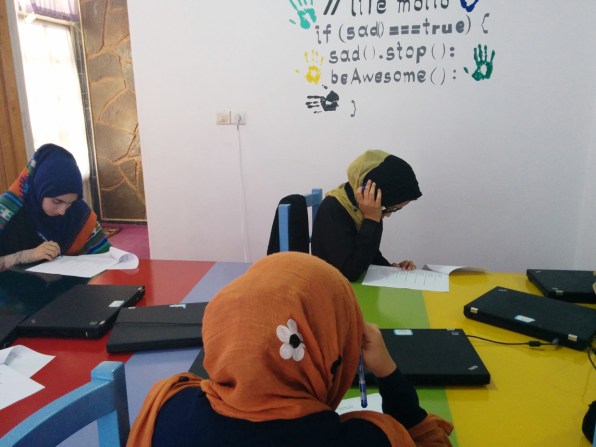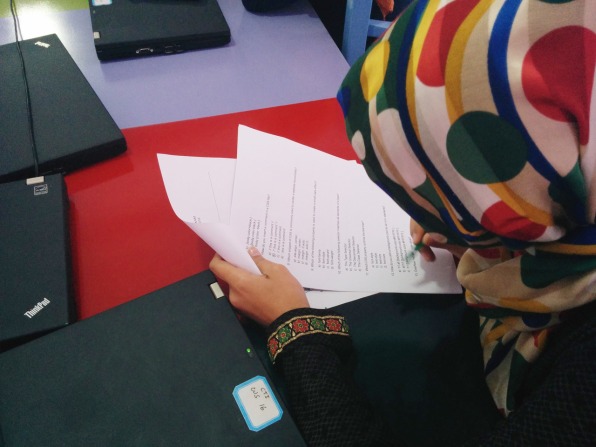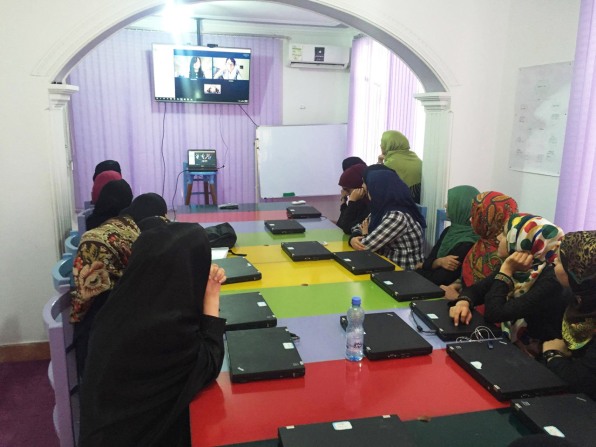What Is the Federal School Code for Strayer University
When a new coding school launched in Herat, Afghanistan, a year ago, some of the teenage girls in its first class had never been online. Some had never used a computer. Now know they Javascript.
The school, called Code to Inspire, is the country's first female-only coding school. The first class of 50 students, age 14 to 25, graduated recently.
The 29-year-old founder, Fereshteh Forough, had been harassed as a computer science college student herself–and realized that in Afghanistan's male-dominated culture, where women are discouraged from actively participating, a traditional college classroom might not be the best place for women to learn to code.

"I noticed that most of the women were not very engaged in the classroom," she says. "When you're not engaged and participating in practical projects, you will not get the skills to work. You know that technology is all about doing practical work to gain the experience."
Without strong portfolios, and because of sexism in hiring, even women with computer science degrees often struggle to find work in the local tech industry. Few women even attempt to get the degree.
But Forough recognized that coding could be an ideal career for Afghan women, who often can't work because their families don't consider it safe for them to travel to a job. Only about 16% of women work in Afghanistan, compared to 72% in other low-income countries. Coding could change that.

"The only thing you need is an internet connection and a computer, and the technical skills," she says. "You do the work online, and you get paid online."
She realized that girls and women also needed a safe place to work.
Because most families in Afghanistan don't have access to the internet at home, female students also typically have to go to internet cafes, where they face more harassment.
At Code to Inspire, on one floor of a coworking space, students have free access to laptops, and can focus on code without worrying about backlash from male students. "It's only for girls, and once they come they feel very comfortable," says Forough. "It's not an environment where they feel pressure or threatened, or face harassment."
When the school started in November 2015, one of the first challenges was explaining to prospective students what they would learn.

"A lot of the girls had no idea what coding means," she says. "We had students that had never touched a computer. They didn't know what a keyboard or a mouse was. So it was very difficult for students to imagine something like coding."
For the first few months, the least experienced students learned the basics–how to use a computer, how to set up Facebook accounts and email, how to tweet, before learning skills like HTML. Eventually, some students were buildings apps. One team of students is currently working on an app to show a different side of Afghanistan and attract tourists.
Over the next year, Code to Inspire plans to help students continue building their portfolios and begin working on paid projects. Forough wants to expand the space in Herat, open new schools in other Afghan cities, and eventually work with partners to build similar schools in other countries in the Middle East or Africa–"areas that share the same challenges for women in education and job opportunities," says Forough.
What Is the Federal School Code for Strayer University
Source: https://www.fastcompany.com/3065924/afghanistans-first-women-only-coding-school-just-graduated-its-first-class
0 Response to "What Is the Federal School Code for Strayer University"
Post a Comment